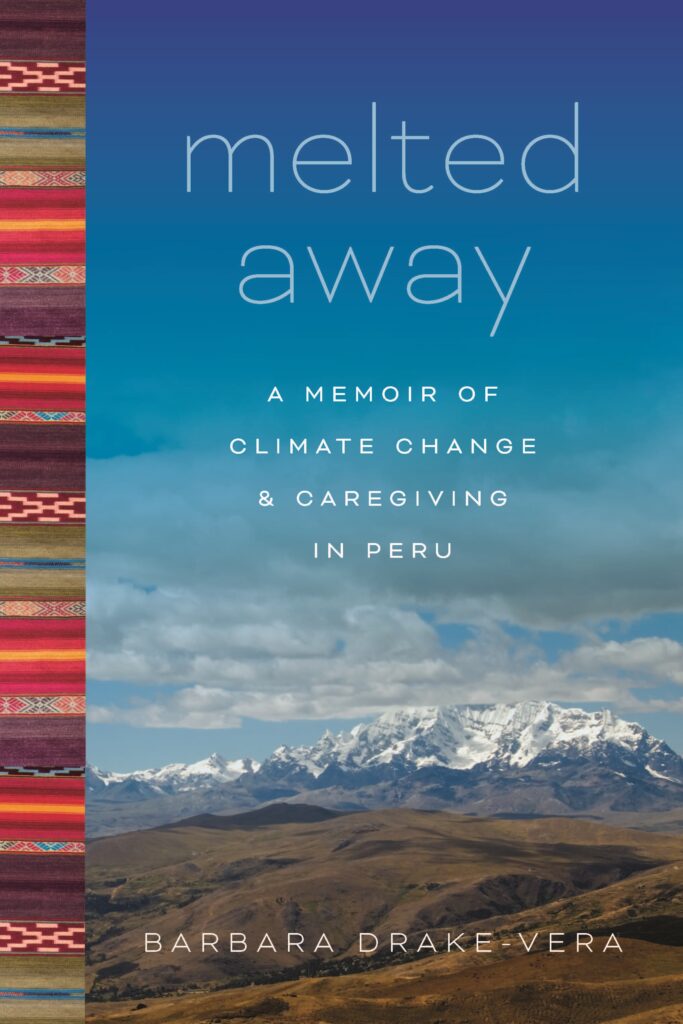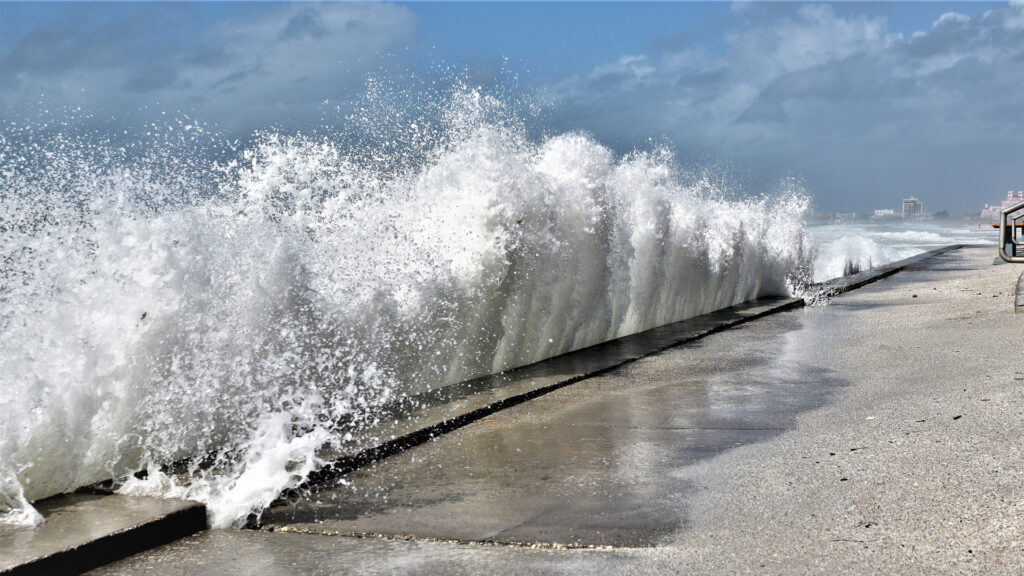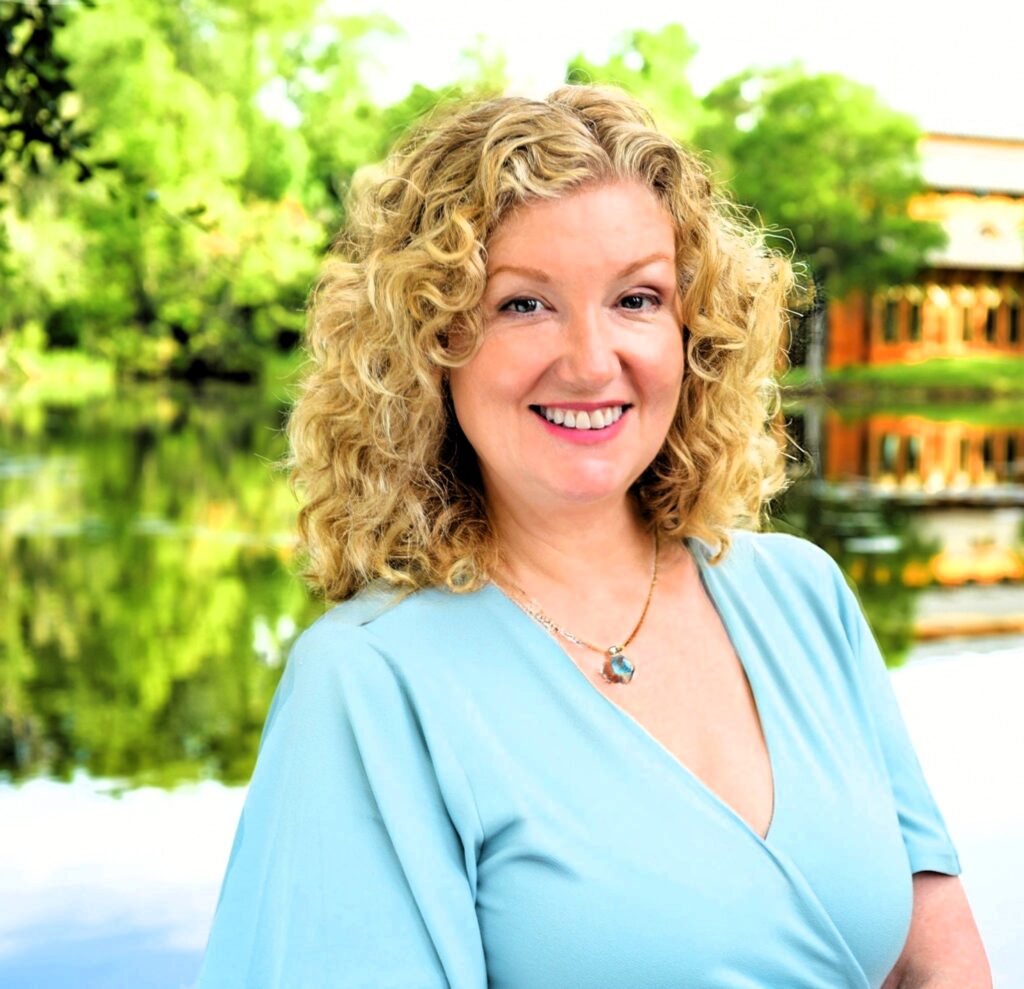By Barbara Drake-Vera
Public opinion on an issue can hold fast for decades, and then — gradually or abruptly, noisily or without fanfare — it can reverse course, the old perspective as irrelevant as a discarded napkin.
This process is underway with climate change, a topic of my new memoir, “Melted Away,” which traces, among other things, my struggles as a freelance journalist to report on melting glaciers in the Andes for U.S. news media in the 2000s and early 2010s, at the height of climate change denialism in this country.
Today, the effects of human-induced climate change are an inescapable reality for most Americans, especially those of us in Florida. A whopping 90% of Floridians believe that climate change is happening, according to the March 2024 edition of Florida Atlantic University’s Florida Climate Resilience Survey.

That overwhelming agreement reflects our lived realities: record-breaking rainfalls and off-the-charts temperatures, jacuzzi-hot Gulf waters in May, sunny-day flooding in South Florida, hurricanes ballooning from Cat 1 to Cat 5 status in just 24 hours. Even if we can escape the heat by hunkering inside, skyrocketing electric bills and homeowner’s insurance premiums demonstrate that the crisis is upon us, whether we like it or not.
Given Floridians’ bipartisan consensus in 2024, it is easy to forget that not so long ago, even intelligent people who acknowledged the reality of climate change considered it a problem of the distant future — or of distant, uninhabited regions like the Arctic. (Remember the forlorn polar bear drifting on an ice floe, the iconic symbol of climate change launched in the early 2000s?)
For me, our earlier, willful blindness to the looming crisis was epitomized by a personal encounter I had in downtown Miami in December 2008, little more than 15 years ago.
The occasion was a holiday party for Miami Herald staffers, to which I, as a Peru contributor, had been invited, along with assorted Miami journalists.
As staffers huddled over wine and canapes, speculating on future newsroom cuts (hundreds of jobs were eliminated at the paper in 2008 and 2009), I spied a familiar face: a former newspaper colleague who had made the leap from print to local broadcast news in the mid-2000s.
A man with a fearless appetite for exposing corruption, he was blunt, funny and opinionated, qualities that attracted viewers.
I made my way over to him, eager to share my exploits investigating glacial recession and water wars in Peru. The stories I was hunting down weren’t as salacious as the high jinks of Miami-Dade politicos, but I figured he’d find them newsworthy, or at least, interesting.
After all, his audience members lived in vulnerable South Florida, where rising ocean temperatures were predicted to create more intense and longer-lasting storms in the near future. And then there were the problems of Florida’s already-eroding shoreline and saltwater intrusion, which would become even bigger problems as sea levels continued to rise, scientists warned. Talk about a major story.
But the topic of climate change made his eyes glaze over.
“Oh, that,” he said.
“You don’t believe in climate change?” I asked quickly, my denier radar on alert.
“Of course, I do. But look, it’s not something that’s going to affect me now or in my lifetime. So why should I care?”
“What about rising sea waters?”
“Hah! Hah!” he barked into my face. “You tell me when the sea level is going to rise? When? Huh? In five years? Fifty? A hundred?”
“It’s coming.”
“So what? I’ll be dead by then!”

I got out a napkin and began scribbling. “I’m writing this down. I want it on record that today, Dec. 20, 2008, you laughed in my face when I said sea levels in Florida could rise in your lifetime.”
He smiled and shook his head.
“You wait,” I said, waving the napkin threateningly. “The sea level is going to become a problem in Florida faster than you think, and then you’ll realize that I was right and you were wrong and — so, there.”
“Hah,” he said one last time.
I snapped a photo of my evidence.
After the New Year, I returned to Lima with the napkin, which hung on my bulletin board while I fired off pitches to U.S. editors, trying to convince them that the disappearance of tropical glaciers in the Andes had relevance for their readers. Susceptible to the slightest temperature hikes, those fragile ice systems were portents of a dystopian future that could soon envelope the United States and the globe, as Ohio State University paleoclimatologist Dr. Lonnie Thompson had been telling me in interviews.
None of the newspapers bit. So, I reported on Lima bullfighting protests instead and blogged about the dwindling glaciers in my spare time.
One of those blog posts caught the attention of an editor at NBC News, and so, like my Miami friend, I transitioned to TV news production, assisting U.S. teams with coverage of environmental and breaking news in Peru, before returning with my family to Florida in 2014.
At some point, the crumpled napkin disappeared. But I still have a photo of it in my computer files. I look at it from time to time, to remind myself how pervasive climate-change minimalizing once was. Evidence of a not-so-distant past when a reasonably intelligent person could laugh in the face of a concerned writer raising the alarm about the most existential threat of our time.
The confidence that many Americans (even those who acknowledged the reality of climate change) had that they would not experience the crisis’s cascading effects in their lifetime.
As I sit in my perch in Gainesville writing this piece, in late July, the Earth just saw its two hottest days on record globally, according to the Copernicus Climate Change Service in Europe. And no doubt, in the future, that record will be beaten again — and again.

The good news is, we’ve woken up since the 2000s. Many Florida newspapers now have at least one environmental journalist reporting on climate change in their area, and the topic is covered seriously at most respected news organizations. Based on a longstanding tradition of Florida conservationism, grassroots climate efforts are surging forward, and some Florida cities have a climate officer or heat officer to spearhead mitigation projects.
It has never been easier to join with others to make a difference locally, regardless of anti-climate-change, pro-fossil-fuel shenanigans in Tallahassee. We’re too immersed now in the crisis to be gaslit by opportunistic politicians.
The other day, I caught a recent episode of my Miami friend’s weekend show.
Midway through the broadcast, he turned to the camera and announced: “Gov. Ron DeSantis weakened the state’s response to climate change and cut spending on renewable energy. We’ll talk to a leading climate advocate when we get back.”
There was no laughing this time. He looked — appropriately — concerned.
Barbara Drake-Vera is an award-winning writer, journalist and climate advocate from Gainesville, Florida. From 2007 to 2014, she lived in Peru, where she worked as a field producer for NBC Nightly News and the TODAY Show. Her new book, “Melted Away: A Memoir of Climate Change and Caregiving in Peru” (LSU Press), recounts her life-changing experiences caring for her estranged father with dementia in Lima while racing to report on disappearing glaciers in the Andes.
If you are interested in submitting an opinion piece to The Invading Sea, email Editor Nathan Crabbe at ncrabbe@fau.edu. Sign up for The Invading Sea newsletter by visiting here.



